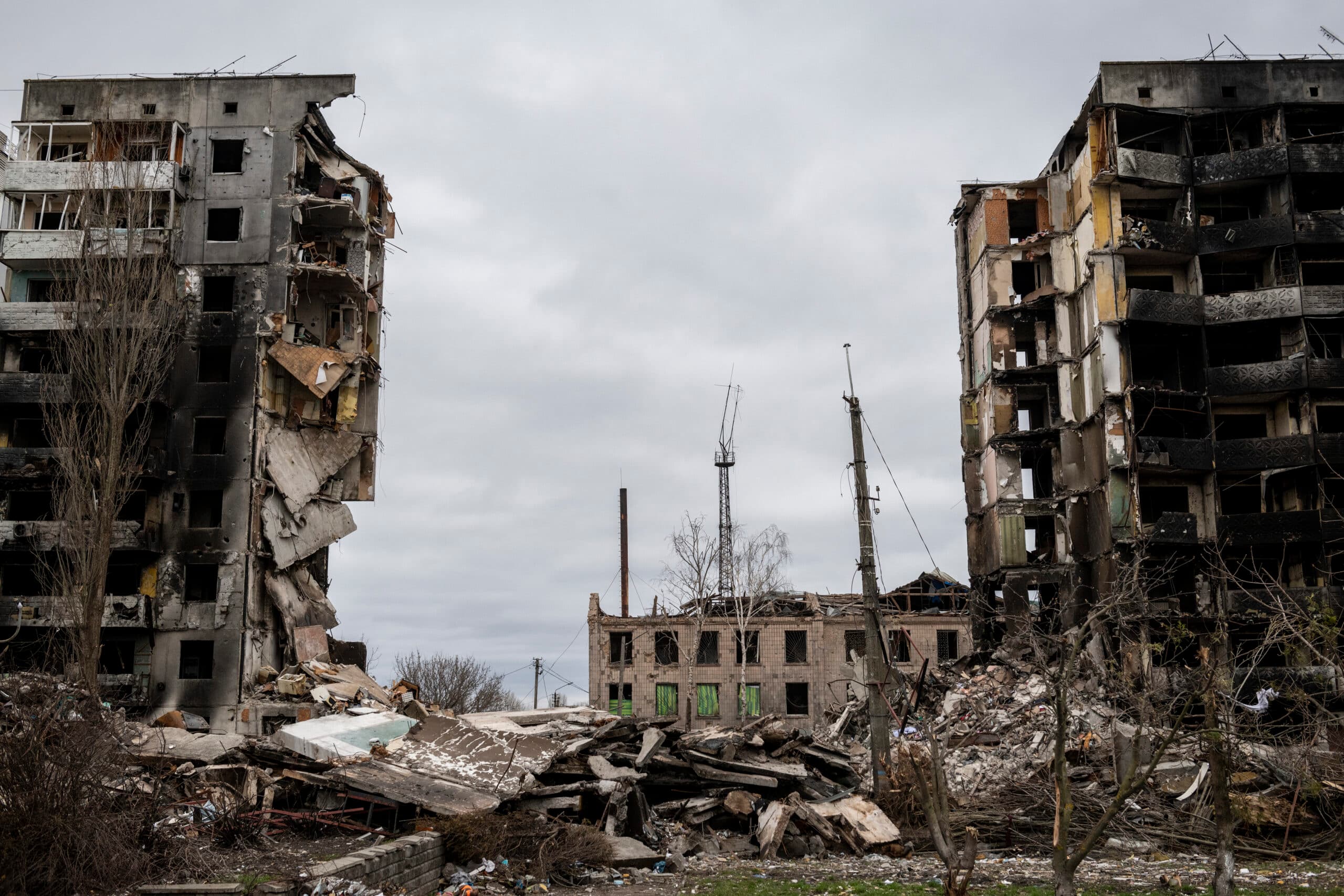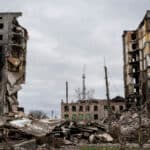
Ukraine: two years since Russia’s full-scale invasion
23 February 202424 February 2024 marks two years since Russia’s full-scale invasion of Ukraine. For the millions of people affected by the conflict it has been two years of immense suffering, in particular for those belonging to vulnerable groups such as women, children, older persons and persons with disabilities. The conflict has also had a devastating impact on men given that those eligible for military service are forbidden from leaving the country. Since February 2022, OHCHR has verified that 10,242 civilians have been killed, including 575 children, and more than 19,300 injured, including 1,264 children. Access to critical services such as energy, heating and health care has been severely disrupted by attacks affecting civilian infrastructure. As of January 2024, more than three million people are internally displaced, while more than six million people have sought refuge in neighbouring or other states. The intensification of the conflict in recent months and the new wave of drone and missile attacks by Russian forces has led to more civilian casualties and additional destruction to critical infrastructure.
A violation of the territorial integrity and sovereignty of Ukraine
The conflict in Ukraine dates back to 2014 when Russia annexed Crimea. This led to tensions and eventual conflicts in the Ukrainian regions of Donetsk and Luhansk where pro-Russian armed groups have sought control. On 24 February 2022, Russia launched a full land, sea and air invasion of Ukraine. Russia’s invasion was in violation of the territorial integrity and sovereignty of Ukraine and the UN Charter which prohibits such acts. As of February 2024, the conflict continues in Ukraine's east and south, where fighting on the front lines remains intense with a significant increase in Russian attacks in the past few weeks.
Continued wide-spread violations of IHL
Several independent international monitoring bodies have collected evidence of serious violations of IHL by Russian forces including indiscriminate and disproportionate attacks, attacks on critical infrastructure, protracted sieges of towns followed by the refusal to allow for the evacuation of civilians and the delivery of humanitarian assistance to the population in need as well as attacks with explosive weapons in populated areas. Ukrainian forces have also reportedly failed to take precautions to protect the civilian population from the effects of hostilities in areas under their control as well as carried out indiscriminate attacks through the use of explosive weapons in urban areas.
IHL sets out clear rules that seek to limit the human suffering caused by armed conflict. Throughout the duration of the conflict, the parties must ensure that attacks are only directed at legitimate military objectives. Indiscriminate attacks are prohibited under IHL. Furthermore, any civilian harm caused by attacks against military targets must be proportionate to the anticipated military advantage. Parties should refrain from using explosive weapons with a wide impact area in densely populated areas due to the significant likelihood of indiscriminate effects. The IHL Centre urges all parties to the conflict to comply strictly with the IHL rules on the conduct of hostilities and to ensure the protection of civilians and civilian infrastructure.
In areas under their control, the Russian armed forces have been accused of wilful killing, summary executions, rape and other forms of sexual violence, the use of torture in a widespread and systematic way in detention facilities, as well as the unlawful transfer and/or deportation of Ukrainian children to Russia or areas under their control in Ukraine. Incidents of torture and ill-treatment against Russian soldiers and prisoners of war by Ukrainian forces have also been reported. Both IHL and international human rights law forbid murder and summary executions and require the humane treatment of persons in the power of the enemy. All acts of torture, rape and other forms of sexual violence against women and girls as well as men and boys are prohibited. Furthermore, IHL prohibits forcible transfers and deportations of the civilian population and children from occupied territory to that of the occupying power. The IHL Centre calls on the parties to the conflict to comply with their obligations under international law and cease all acts of violence against persons subject to their control.
Immediate compliance with international law urgently needed coupled with effective investigations
The Prosecutor of the International Criminal Court (ICC) opened an investigation into the situation in Ukraine on 2 March 2022 concerning past and present alleged war crimes, crimes against humanity or genocide committed on the territory of Ukraine from 21 November 2013 onwards. On 17 March 2023, Pre-Trial Chamber II of ICC issued arrest warrants for the President of the Russian Federation and his Commissioner for children’s rights in relation to the war crimes of unlawful deportation of population (children) and unlawful transfer of population (children) from occupied areas of Ukraine to Russia.
A Joint Investigation Team (JIT) between the governments of Lithuania, Poland, and Ukraine was established in March 2022 with the support of Eurojust. The JIT, the initial membership of which was expanded, aims to gather evidence on possible war crimes, crimes against humanity, and other international crimes committed in Ukraine and facilitate investigations and prosecutions.
As a humanitarian organisation committed to upholding IHL and human rights and fostering compliance with international law, the IHL Centre stresses the importance of ensuring accountability at the national and international level for alleged serious violations of IHL and human rights committed during the conflict. The IHL Centre urges the parties to the conflict to ensure the timely, effective, independent and impartial investigation and prosecution of violations of international humanitarian and human rights law and hold perpetrators to account through judicial proceedings that comply with international human rights standards. The IHL Centre further calls on third States to ensure respect for IHL by the parties to the conflict, investigate alleged war crimes over which they have jurisdiction, and support efforts to strengthen national and international criminal justice procedures.
